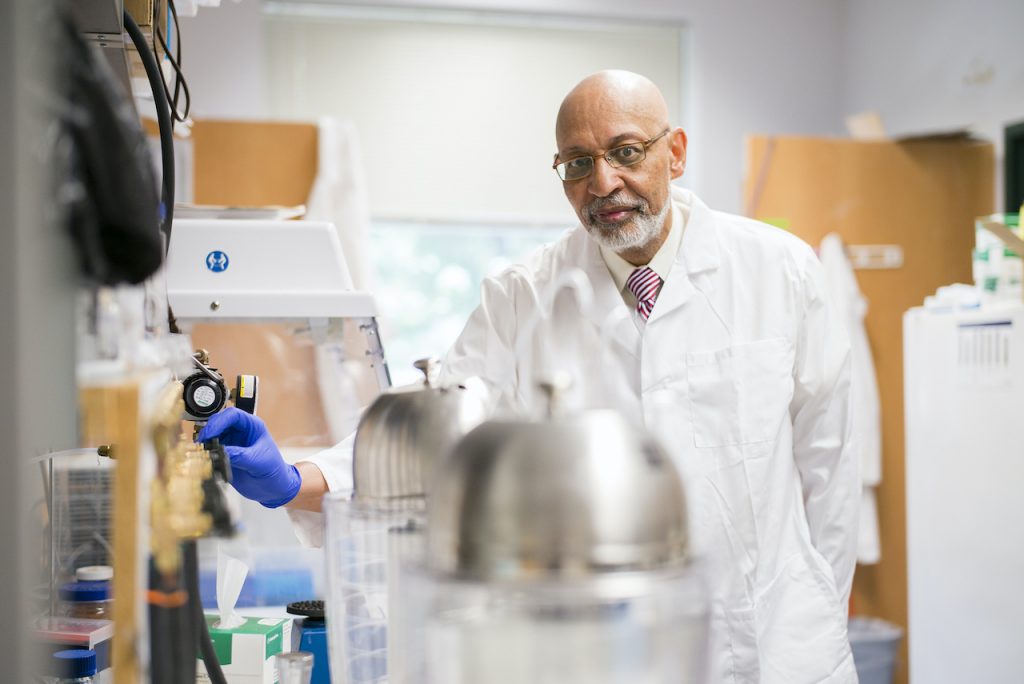
By Chris Bryant
Florida A&M University (FAMU) School of the Environment Professor Henry Neal Williams, Ph.D., was awarded a $929,241 National Science Foundation (NSF) Excellence in Research grant.

Williams, an environmental science professor, focuses on microbiology. His research investigates predatory microorganisms and the effects they have on populations of other bacteria. He said the grant will help him as well as students.
“The grant will support graduate and undergraduate students and a postdoctoral associate who will contribute immensely to the research, but also to the training of students and in teaching,” Williams said.
The three-year grant, “Excellence in Research: Assessing the Control by Multiple Micropredators on Bacterial Communities in Estuarine Environments and Characterization of Prey Lysis Products Resulting from each Predator,” will support research to advance understanding of the role of predators of bacteria in controlling and structuring bacteria and the cycling of nutrients in the environment.
The award made to FAMU is a multi-institutional partnership with the National High Magnetic Field Laboratory, Florida State University and Virginia Union University, which like FAMU is a historically Black college and university (HBCU).
The grant was funded by the NSF Division of Education and Human Resources HBCU-UP (Undergraduate Program) and managed by the Division of Ocean Sciences Biological Oceanography Program.
The NSF’s Excellence in Research Awards provides support to enhance the research capabilities of minority-serving institutions and to facilitate the growth of institutional research capacity and to produce doctoral students.
Academic researchers rely on external funds and grants to sustain their research projects as well as to train others.
“Knowing that I have funding now for the next three years, and a great team to work with is both a relief and super exciting,” said Williams, who also lauded the partners at other institutions. “Undergraduate and graduate students will be mentored and trained on cutting-edge interdisciplinary research at FAMU, the National High Magnetic Field Laboratory and at the Kranz and Stukel laboratories at FSU.”
Williams is a 2019 FAMU Distinguished Researcher and an American Association for the Advancement of Science Fellow. During his tenure at the FAMU School of the Environment, he has secured millions in research grants.
Victor Ibeanusi, Ph.D., dean of the FAMU School of the Environment, said Williams’ research and grant awards play a major role in fulfilling the school’s mission.
“The goal of the School of the Environment is to lead the nation as the top producer of minority students with undergraduate and graduate degrees in Environmental Science,” Ibeanusi said.
“Microbial systems are in the forefront of environmental restoration. This award supports our legacy of excellence of advancing cutting edge research in areas of microbial ecosystem and biotechnology addressing the roles of microbial ecosystems in promoting environmental restoration and processes that ensures sustainable functioning of the environment.”
